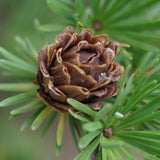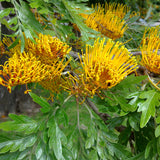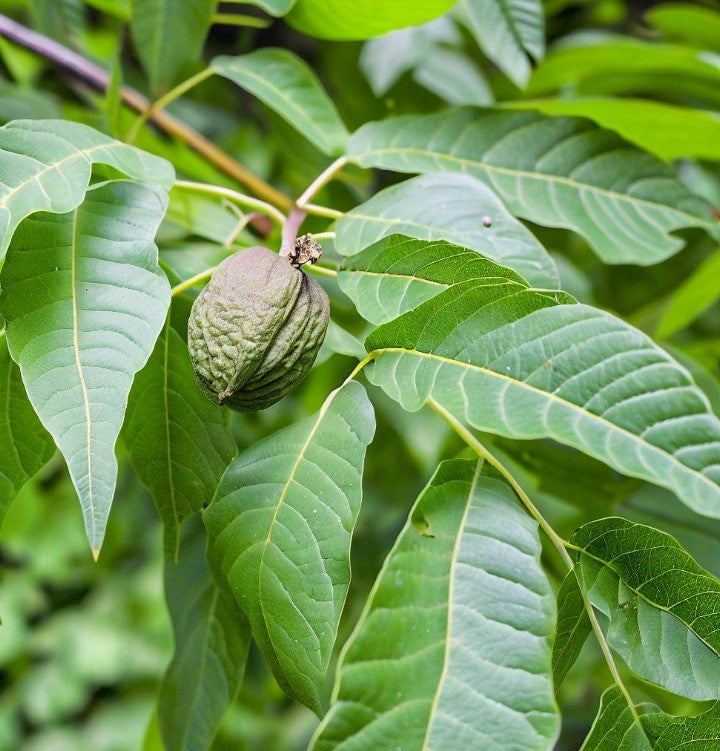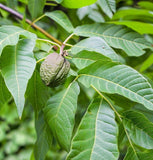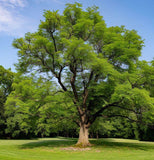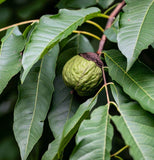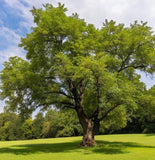Juglans x Paradox (Paradox Black Walnut)
Juglans x Paradox (Paradox Black Walnut) is a hybrid tree that results from the crossbreeding between the Eastern Black Walnut (Juglans nigra) and the English Walnut (Juglans regia). It is valued for its attractive wood and its ability to produce high-quality nuts. Here's some information about Juglans x Paradox:
Appearance: Paradox Black Walnut trees generally exhibit characteristics intermediate between its parent species. It is a large, deciduous tree that can reach heights of 40 to 60 feet (12 to 18 meters) or more. It has a broad, spreading canopy with compound leaves that consist of 11 to 23 leaflets. The bark is grayish-brown and develops deep furrows as the tree matures.
Nuts: Paradox Black Walnut trees produce nuts that are similar to those of the English Walnut, which are known for their thin shells and mild flavor. The nuts are generally larger than those of the Eastern Black Walnut. They have a smooth, rounded shape and are encased in a green husk that splits open when ripe.
Growing conditions: Paradox Black Walnut trees are adaptable and can thrive in a variety of soil types, including well-drained loam, sandy soils, and clay. They prefer full sun exposure to ensure optimal growth and nut production. These trees are typically hardy in USDA hardiness zones 5 to 9.
Maintenance: Paradox Black Walnut trees require regular watering, especially during dry periods, to establish strong root growth. Once established, they are relatively drought-tolerant. Pruning is generally not extensive and is primarily done to maintain the tree's shape and remove any dead, damaged, or crossing branches. Like other walnut trees, Paradox Black Walnut produces a chemical compound called juglone, which can inhibit the growth of certain plant species nearby. Care should be taken when selecting companion plants for the area surrounding the tree.
Uses: Paradox Black Walnut trees are primarily grown for their wood and nuts. The wood is highly valued for its strength, durability, and attractive grain pattern, making it sought after for furniture, cabinetry, and other woodworking projects. The nuts are edible and have a milder flavor compared to those of the Eastern Black Walnut. They are often used in baking, cooking, and snacking.
Cultivation: Paradox Black Walnut trees are typically propagated through grafting or budding. Grafting involves joining a scion (a piece of the desired tree) onto a compatible rootstock, while budding involves inserting a bud from the desired tree onto the rootstock. This hybrid tree is not typically grown from seed due to the variability in traits and potential for poor nut quality.
Paradox Black Walnut trees offer a combination of desirable traits from its parent species, making it a valuable tree for both its wood and nut production.
Botanical Name : Juglans x Paradox
Common Name : Paradox Black Walnut
Height : 90 ft
Spread : 110 ft
Germination Info : Seed requires 90-120 days cold moist stratification
Hardiness zone : 8+
Average seed per ounce : Approx. 2

